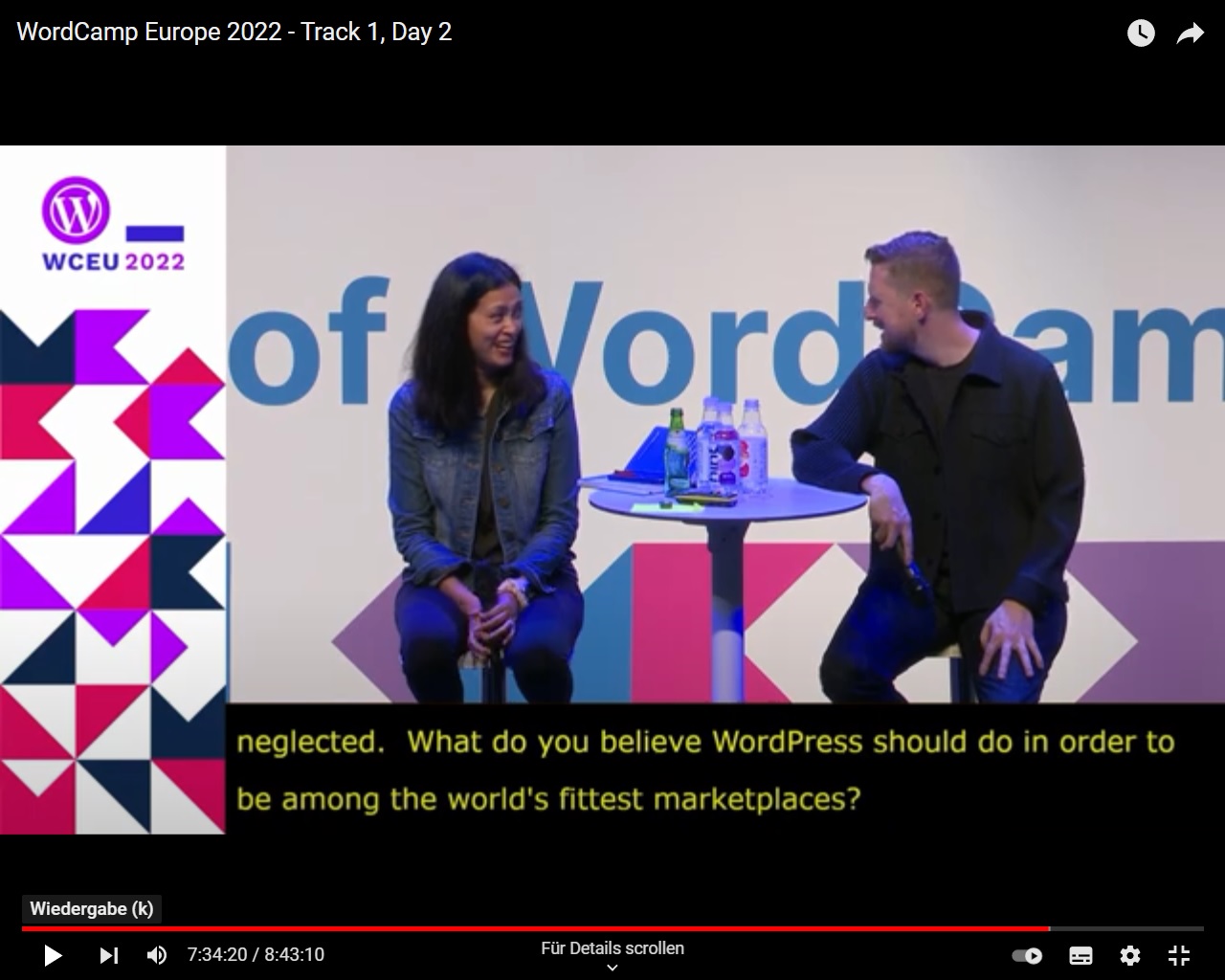That quote is from a talk Alain Schlesser [ https://www.alainschlesser.com ] gave at WordCamp Europe (WCEU) a few weeks ago in Porto (yet which I didn’t have a chance to attend “in the flesh”). I myself did not give a presentation, but I did ask Matt Mullenweg and Josepha Haden a question (see e.g. “Social Business Regulation: Introduction & Socio BIZ Rule #1” [ https://socio.business.blog/2022/06/06/social-business-regulation-introduction-socio-biz-rule-1 ] ). Alain’s talk can already be viewed at WordPress.TV [ https://wordpress.tv/2022/06/24/we-need-to-do-better-really ], but my question to Matt and Josepha is not available yet in video format at that site (however, you can see an image including an excerpt from my question here):

I think I view the situation even more gravely than Alain. In my opinion, publishing — which has been one of the cornerstones of modern science for about half a millennium — is currently at risk of being subsumed among a very few very large companies. These global players (including Google, Amazon and perhaps a few more businesses involved in what I might refer to as “Spyware 2.0”) are now already able to manipulate the global population — which now show an extremely naive kind of blind faith (I myself have referred to Google as the “online Pope” for well over a decade).
Alain details many reasons why many people have become “unwilling or unable” to use the open Web (versus “native” Apps — and here, oddly, “native” refers to the hardware platforms of the smartphones they are using [1] ).
His entire talk is very informative and I feel it also simplifies very complex issues just enough to make it easily understandable for the wider community — and it is this issue, namely the wider community that I wish to focus on here.
He concludes with a rather simple (and at the same time important) question: There’s got to be a better way of turning the value you’re producing into the money you need to make it sustainable — what are some proposals for such a better way? [2]
I have such a proposal
I propose that WordPress should focus more attention towards the integration of “the wider community” as participants (and as contributors, in a wide variety of roles) than it currently does. I believe this would mean that the WordPress project should devote far more attention into turning “walled gardens” into more fluid marketplaces with more permeable membranes. I believe this is very much in line with the question I raised (which I have also written about quite extensively — a good starting point being the article I shared above [via socio.biz] ). Obviously, there are security issues involved — and I strongly believe WordPress needs to step up its game in order to provide the wider audience with a justifiably stronger sense of security.
As one example of this, let me consider the role of “administrators” — the people keeping a WordPress site up and running from a “technological” perspective. Perhaps site owners would have a (justifiably) greater sense of security if they could “hand over the keys” to their site towards trusted (and as I argued in “Socio Biz Rule #1”: authenticated) partners — even more-so if they had different key for each of the different administrator types — such as web-designers, graphic-designers, database specialists, etc. — and likewise differentiated roles (and capabilities).
Community and teamwork belong on the same page — and this is true from the top levels all the way down to a participant who can do little or nothing more than to read or click a like button. In order for this to work, there needs to be a reliable way to discriminate between human beings and bots (again, simply as an example). I don’t mean 100% reliability, but I do mean reliable enough to guarantee that if an error happens, then it can be fixed in some way … to the satisfaction of each and every community participant.
